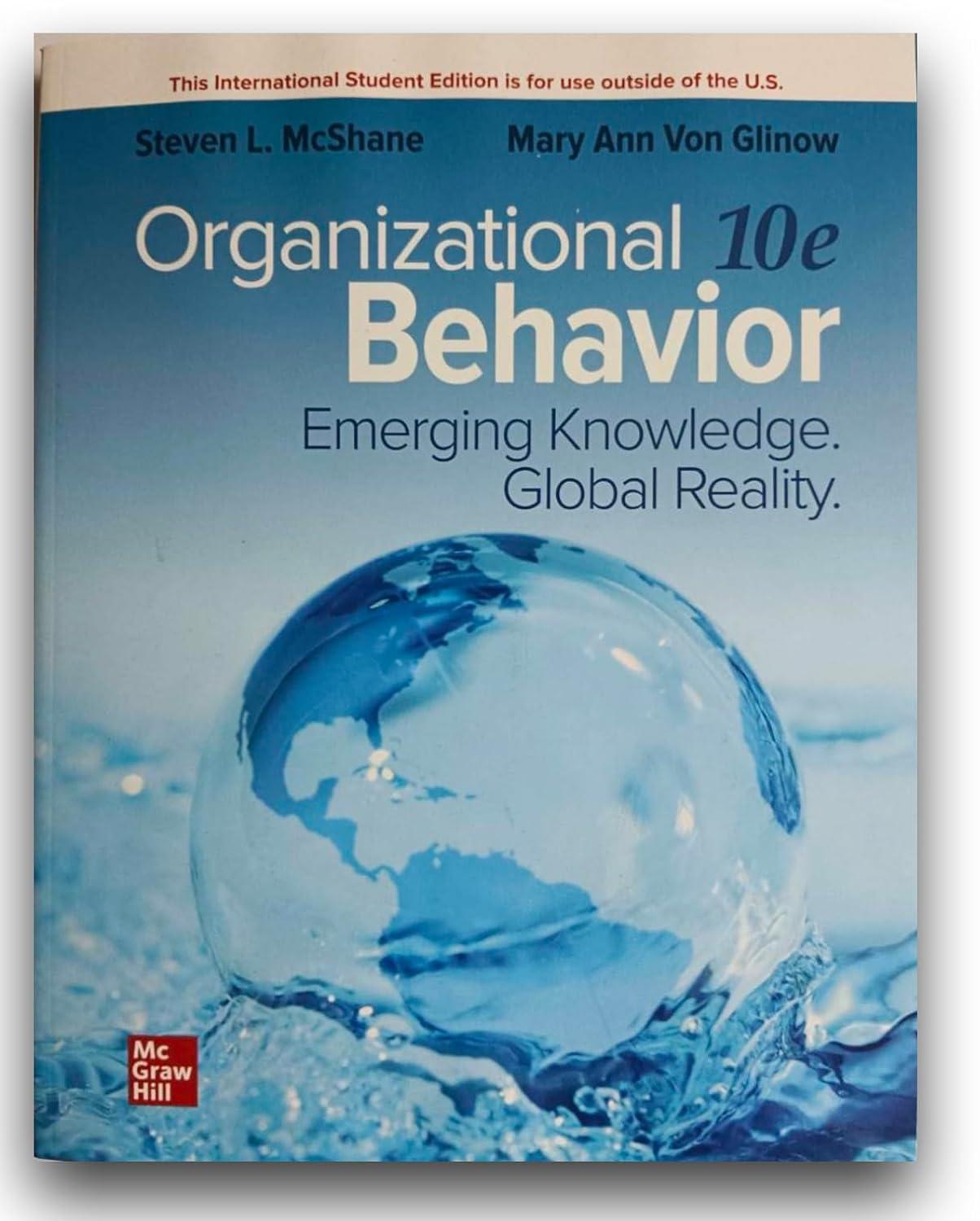The main thing that Quinn McGee learned after working several summers at the citys Parks and Recreation
Question:
The main thing that Quinn McGee learned after working several summers at the city’s Parks and Recreation Department was how to get the job done at a very leisurely pace.
Soon after he was hired for the first summer, McGee heard a coworker jokingly refer to the department as “Parks and Relaxation.” It was an accurate title. A few days later, while performing his job at a pace normal to most human beings, McGee was scolded by a “lifer” (a permanent city worker with life-time employment) for going too fast. He was told in no uncertain terms to slow down.
Quinn McGee learned that this was useful advice. The department assigned goals for how long each task should take to complete, but there were no rewards for crew members to finish work sooner than the goals specified. On the contrary, if the crew completed a task faster than expected, the supervisor seldom had anything else for the team to do that day. This visibly frustrated the supervisor because it didn’t look good if employees were sitting around. Finishing work quickly also left employees with the painful duty of trying to look busy for the rest of the day.
At first, looking busy was difficult for McGee. “During the first summer, I couldn’t look busy even if my life depended on it,” he recalls. In his performance evaluation at the end of the first summer season, McGee’s supervisor complained that he was standing around too much. So, to avoid warnings from lifers and poor evaluations from his boss, over the next few summers McGee tried his best to adopt a more leisurely pace of work.
Another deterrent to working efficiently was that McGee and other seasonal employees would be laid off each summer after their assigned projects were completed or the Cincinnati Super Subs is one of the larger Super Subs outlets, a chain of 300 takeout sub sandwich restaurants in Indiana, Ohio, and Michigan. This outlet has a restaurant manager, an assistant manager, and several part-time team leaders. The restaurant manager rarely has time to serve customers, and frontline work by managers is discouraged by the head office. The assistant manager serves customers for a couple of hours during the busy lunchtime but otherwise assists the restaurant manager with purchasing, accounts, hiring, and other operations. Most team leaders are college students and serve customers alongside other employees, particularly from late afternoon to night closing. Most employees are also students who work part-time; a few are in high school. All regular staff earn minimum pay rates.
Cincinnati Super Subs has experienced below-average profitability over the past 18 months, which has reduced the monthly bonus paid to the restaurant manager and assistant manager. This bonus is calculated by percentage of
“wastage” (unsold, damaged, or unaccounted for food and drinks) relative to sales; the lower the percentage of department’s budget for summer help was spent. The employees didn’t want to get laid off early, and the department managers didn’t want a budget surplus because city hall might cut the extra money from next year’s budget. So everyone was quite happy to see McGee and others working slowly and taking longer for lunch and coffee breaks until the budget was depleted.
Quinn McGee eventually mastered the skill of working slowly without appearing to be sloth-like. But now that he no longer works summers in the city’s Parks and Recreation department, he has trouble getting motivated for jobs that require real work effort. “I became a role model on how to look like a reasonably productive employee while actually working at a snail’s pace,” McGee admits. “Who should I blame for this sorry state?”
Discussion Questions 1 Apply expectancy theory of motivation to explain why Quinn McGee and coworkers were motivated to work at a slow pace rather than at a “normal pace for most humans.”
2 To what extent do goal setting and equity theories of motivation explain the motivation problems in this case?
3 Assume you are a consultant with this information. What recommendations would you provide the city’s executives to improve employee motivation in the Parks and Recreation Department?
Step by Step Answer:

ISE Organizational Behavior Emerging Knowledge Global Reality
ISBN: 9781266108099
10th Edition
Authors: Mary Ann Von Glinow Steven McShane





